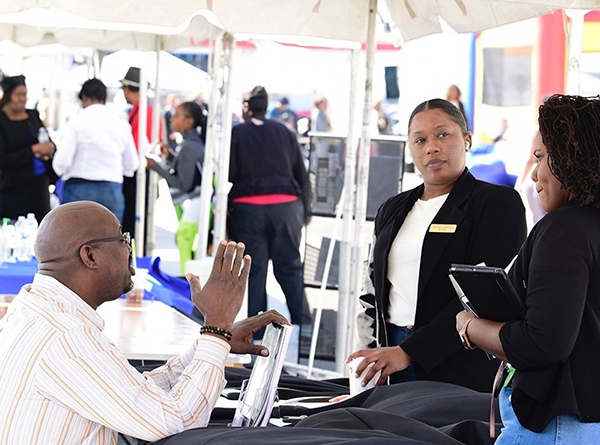By Earl Ofari Hutchinson
Contributing Columnist
African Americans have been lectured to, hectored, harangued, shamed and whipsawed for eternity over why it is important to save money. The reason for that is they are far behind whites and just about all others among the general public in savings.
This is the first of a two-part series on ways and means to enhance financial security for African Americans through saving and planning.
Nearly all agree that they will do better when it comes to savings. In fact, in Prudential Financials first ever African American Experience survey in 2011, Black respondents were adamant that they didn’t save enough, either because they didn’t have the resources or that the financial community had written off Blacks as major savers.
The most distressing finding was that not only was the percent of Blacks who felt they were making any real progress toward meeting whatever financial goal they set for themselves extremely high, but that many Blacks hadn’t even started saving anything. That was more than a decade ago.
Comparable surveys on African-American financial wellness have shown that the dismal picture on paltry saving remains the same.
Despite the dismal picture, what’s missing in the countless admonitions to develop a savings plan at whatever age and stick to that plan, is spelling out exactly what not having a savings plan and building savings based on that plan can mean. I’m not talking about the scare stuff about winding up homeless, in dire poverty, being ill and unable to pay medical costs, and even an early death.
These conditions are a brutal reality for many African American who are gainfully employed. Yet, they have nothing substantial in savings in the bank. Even worse, many of those with minimal savings are not 20 or 30. They are 50, 60 and even 70.
Now it’s true that there is a great debate over just how much one does need to sock away with an eye on the future to meet their needs and hopefully live comfortably on. The figures vary wildly from half of one’s net income to upwards of 70 or 80% of their income. The higher figure is a near impossible amount for a lot of African Americans who simply don’t have the income to put aside that level of savings each week or month to reach that goal.
Let’s put some numbers to this. If you earn $50,000 yearly, you’d need anywhere from $35,00 to $40,000 to live on once your employment terminates. That’s just to maintain one’s current lifestyle, with no frills such as travel, major purchases, such as a new or later model auto, let alone a new home or condo purchase.
This is far out of the reach of many. The chances are good that the retirement engine will start whirring in reverse and there will have to be a substantial downgrade in one’s lifestyle. That’s just to keep one’s head above water.
For most African Americans, that will almost certainly mean that they’ll have to lean heavily on their Social Security payments to get by. The rub here, really two rubs, with Blacks is that the average Social Security payment is about $1,300.
The second is that many African Americans don’t even come close to garnering that monthly payment. However, many other African Americans do receive benefits on a par with those received by whites.
Whatever the Social Security benefit Blacks receive, it’s literally a matter of bare survival for them since the overwhelming majority rely on Social Security for more than half their income. More than half rely on their Social Security check for nearly all of their income. That check is their lifeline. Without it they would wallow in dire poverty.
There’s an irony even with this. Blacks, especially Black males, die much earlier than white males and females. This shortened mortality means that Blacks with no financial cushion outside of their Social Security check will spend less time in poverty.
However, with improved health services, Blacks are living longer than ever. That means that with limited, or even no financial reserves other than a small Social Security payment, they will be poorer now even longer.
The saving grace is that in the past decade, African American employment, though still chronically lower than that of whites, has taken a major leap upward. Current figures show that the jobless rate overall on President Joe Biden’s watch is at a near record low.
That means that more African Americans have more marginal discretionary income that can be saved or invested. The prudent thing is to have a plan for saving or investing and stick to it. There is no guarantee of a continued healthy financial and employment future for African Americans within the work force. So now is the time to build wealth for the present and future.
Earl Ofari Hutchinson is an author and political analyst. His latest book is “President Trump —Again?” (Amazon). He also is the host of the weekly Hutchinson Report on KPFK 90.7 FM Los Angeles and the Pacifica Network.












